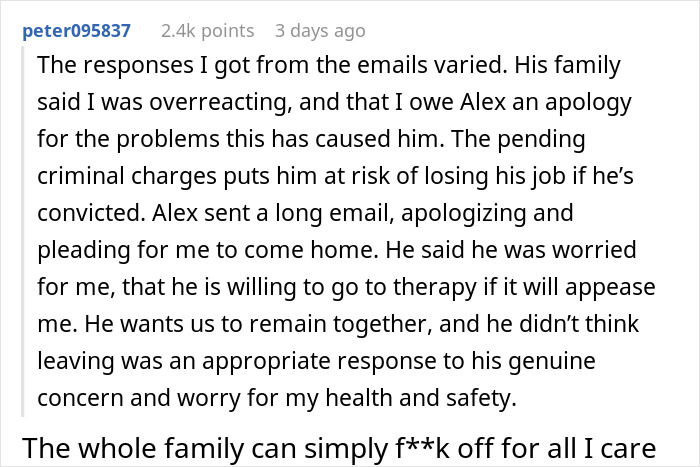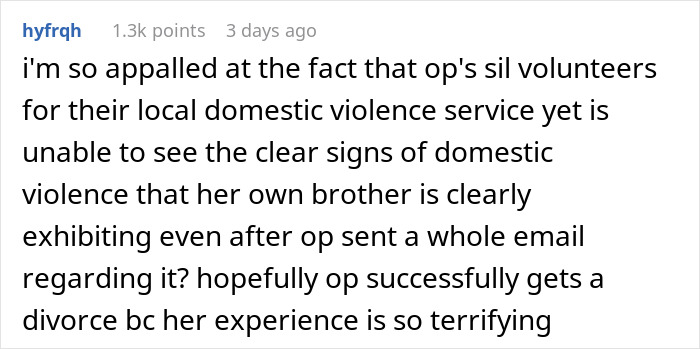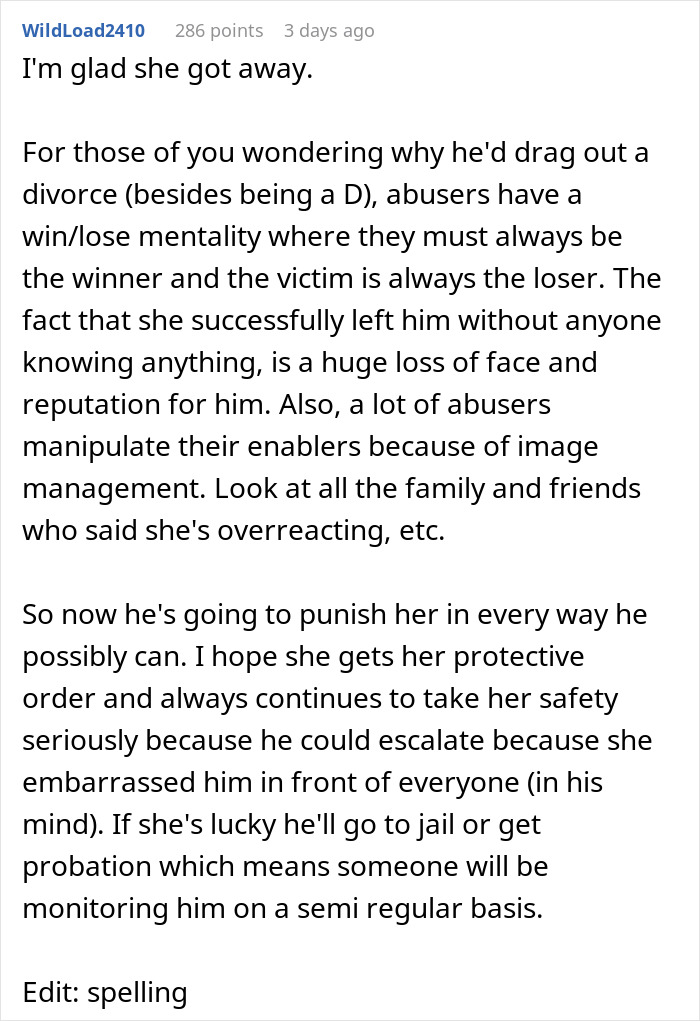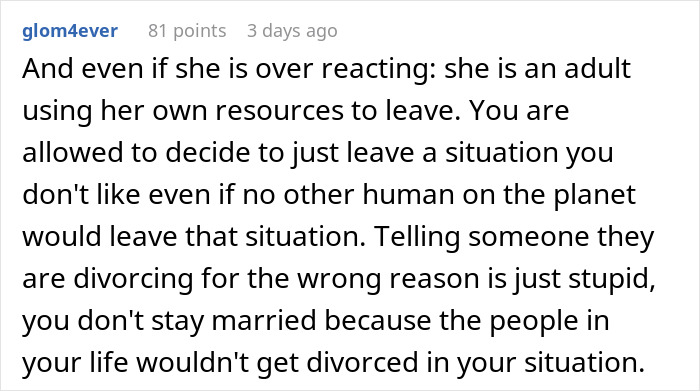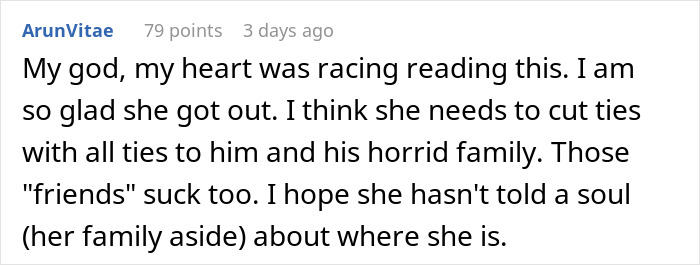Trust is the basis of a solid relationship. It allows each half of the couple to feel safe and comfortable, as well as fosters healthy communication and boundaries. Without it, the relationship can quickly take a wrong turn, leading to insecurities, conflict, and anxiety.
Redditor Complex-Wing7114 experienced this firsthand. In the beginning, her relationship seemed nothing out of the ordinary. However, over time, her husband’s questions about where she was going, who she was meeting, and what they were doing turned into him checking her phone, researching friends, and trying to take over her bank accounts. Hit with a bad feeling, she decided it was time to leave and crafted a foolproof divorce plan in two weeks.
Scroll down to find the full story and a conversation with marriage and family therapist Marisa T. Cohen and therapist and author Catherine Cabrera, who kindly agreed to tell us more about trust issues and controlling behavior.
Without trust, a relationship can quickly take a wrong turn

Image credits: Liza Summer (not the actual photo)
Just like what happened to this woman, who even had to secretly plan a getaway from her husband

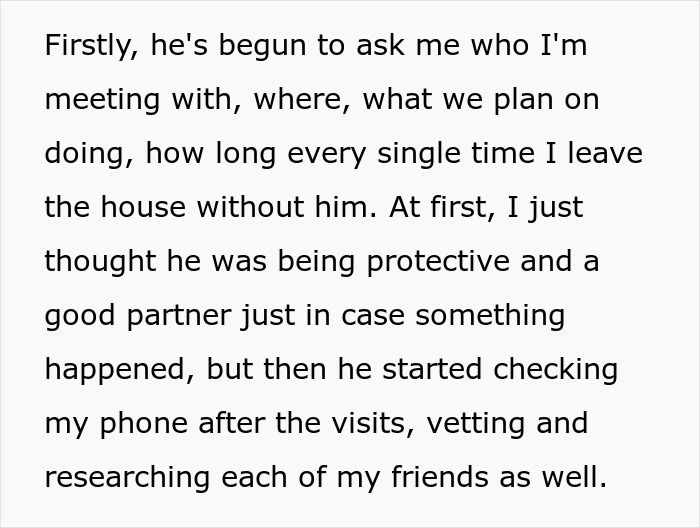
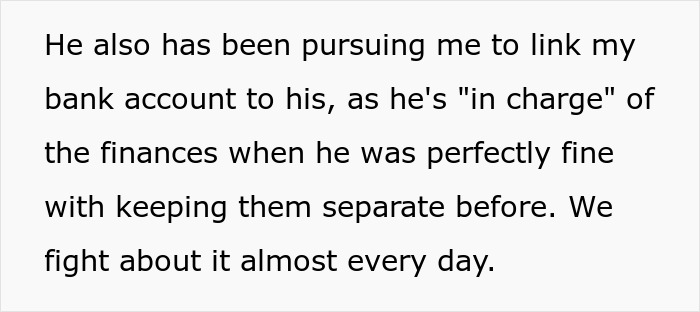
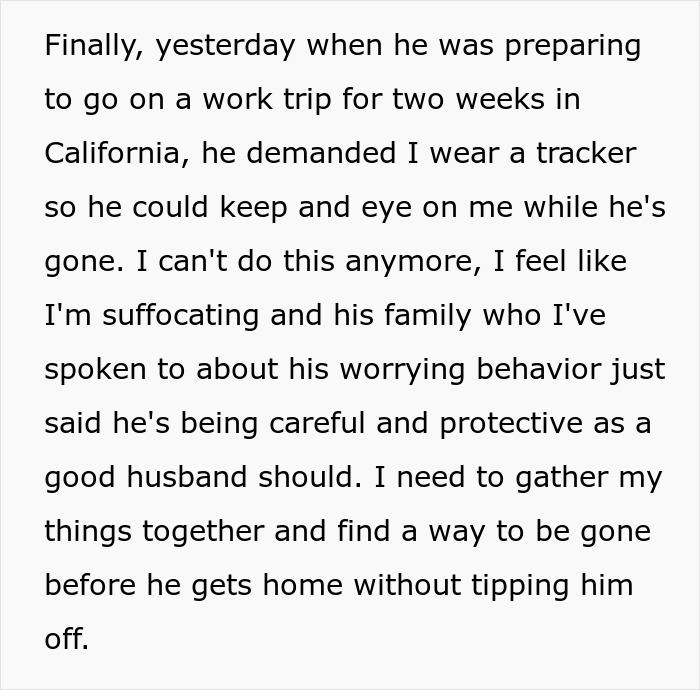
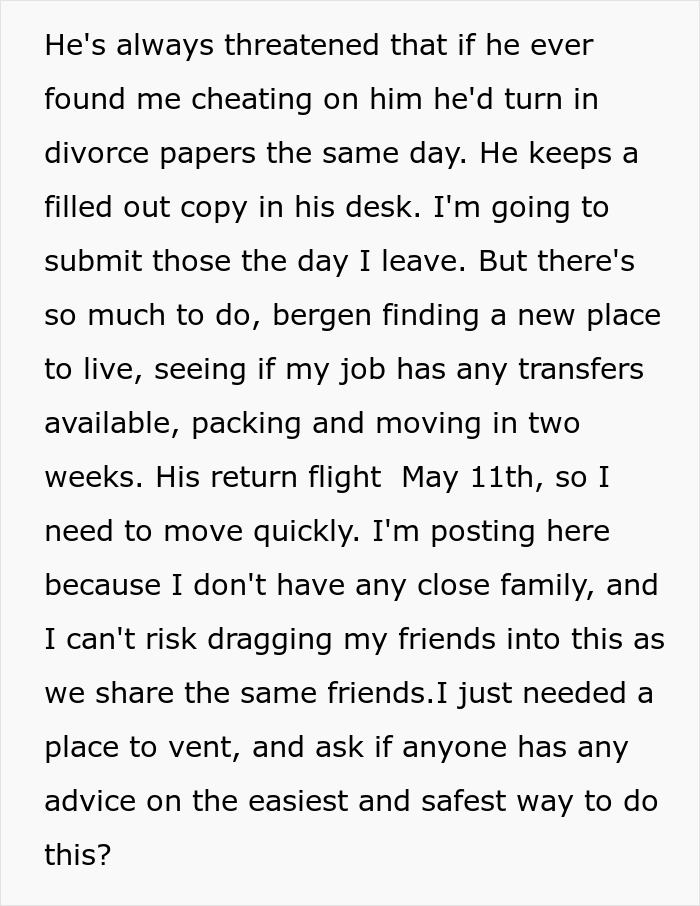

Image source: Complex-Wing7114
In the first update, she started documenting her process of leaving
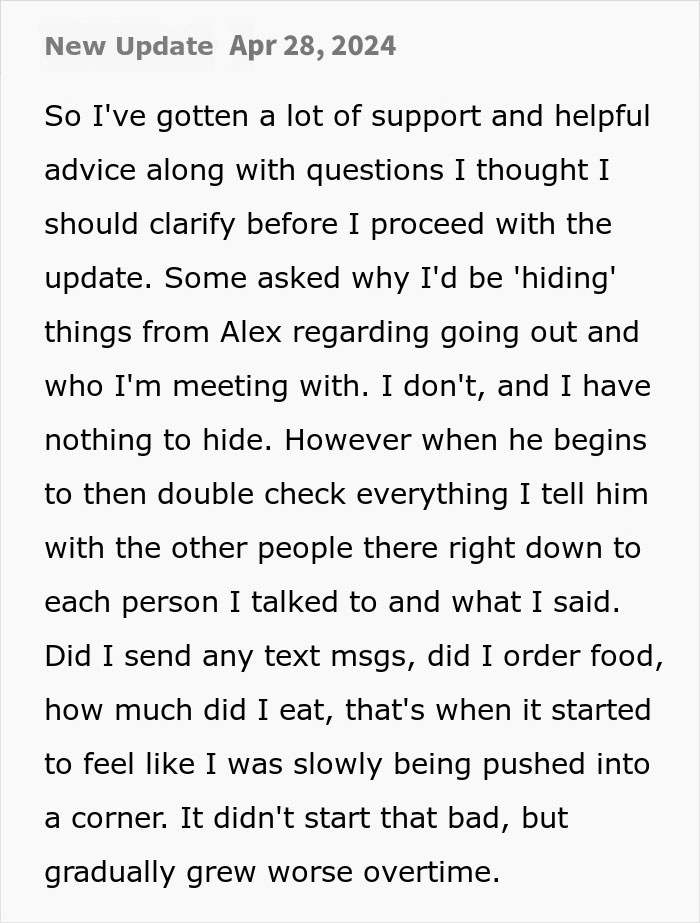
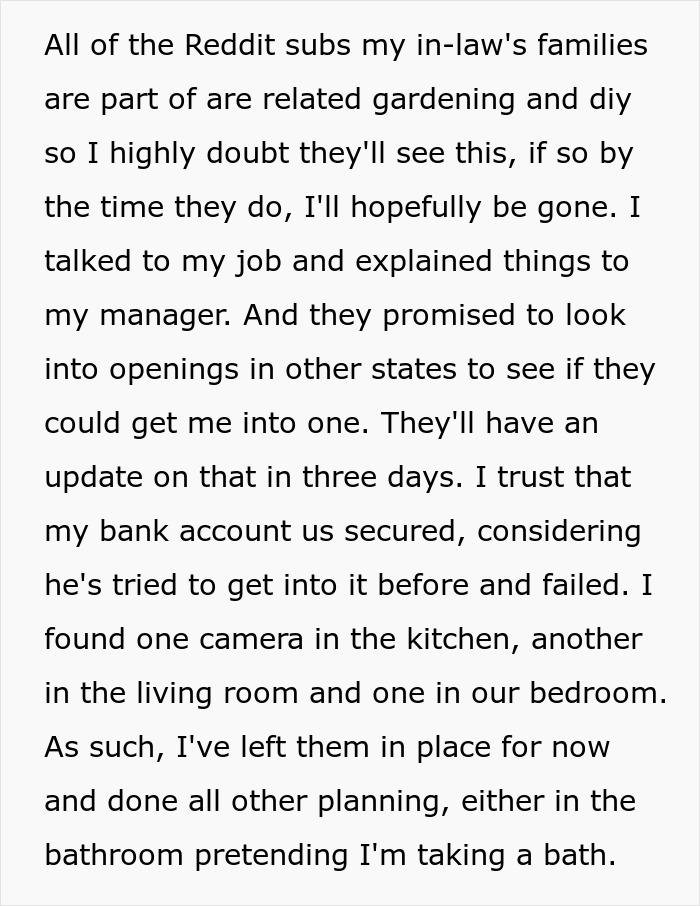
Image credits: Jakub Zerdzicki (not the actual photo)

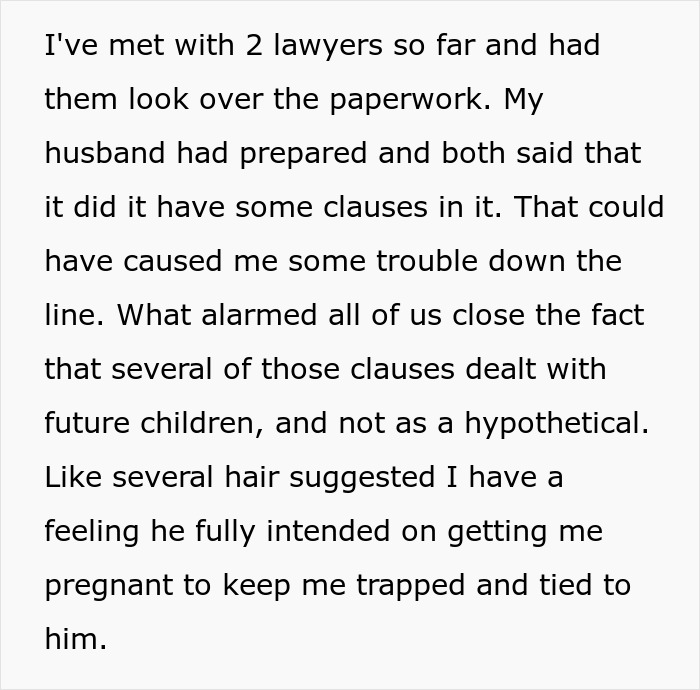
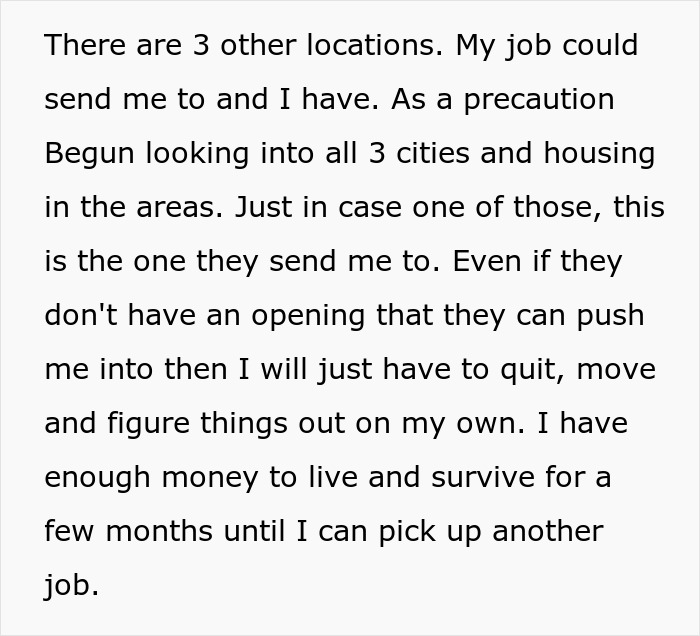
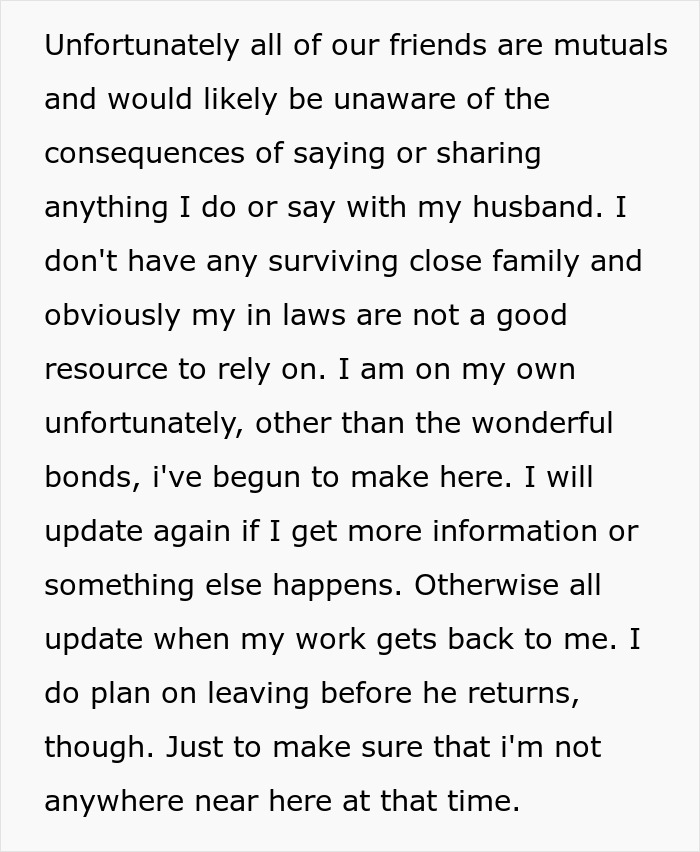
Image source: Complex-Wing7114
A bit later, she informed readers that she had gotten a transfer to a job across the country

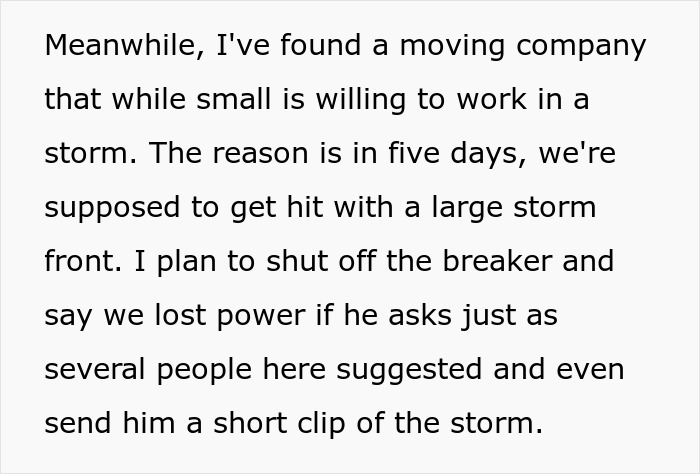
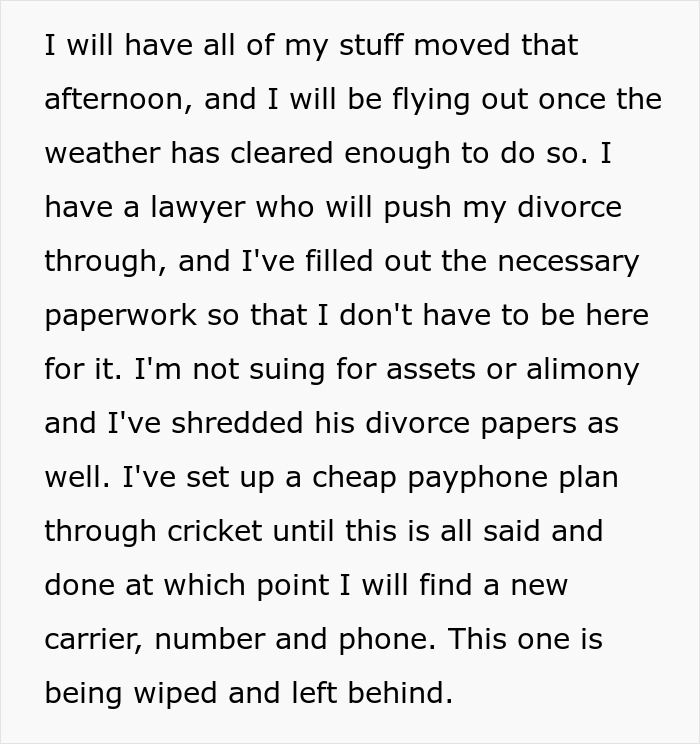
Image credits: Kampus Production (not the actual photo)

Image source: Complex-Wing7114
After a week, she posted another update, saying that she was finally able to leave home
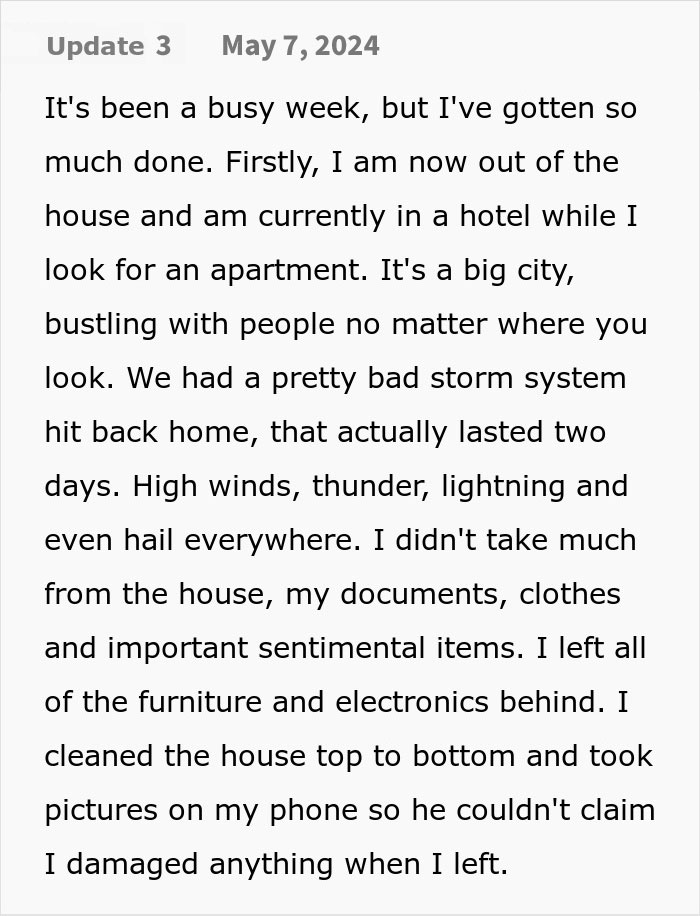
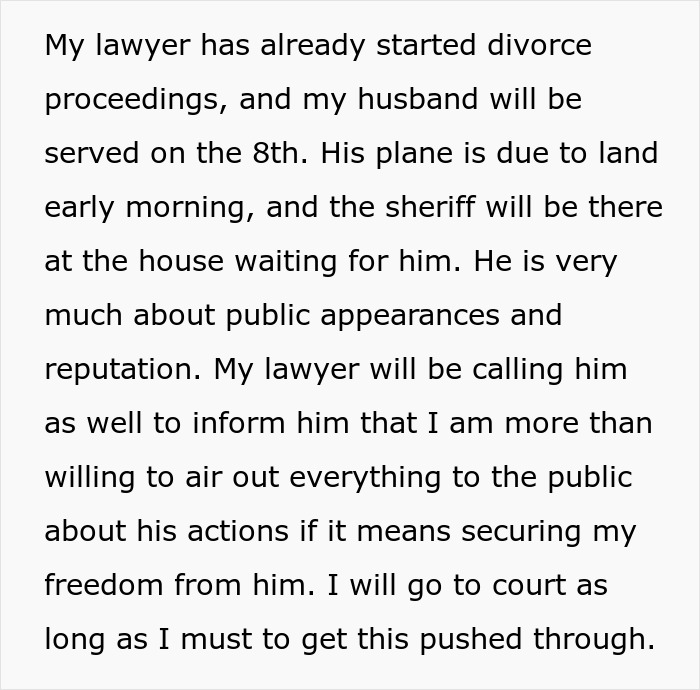
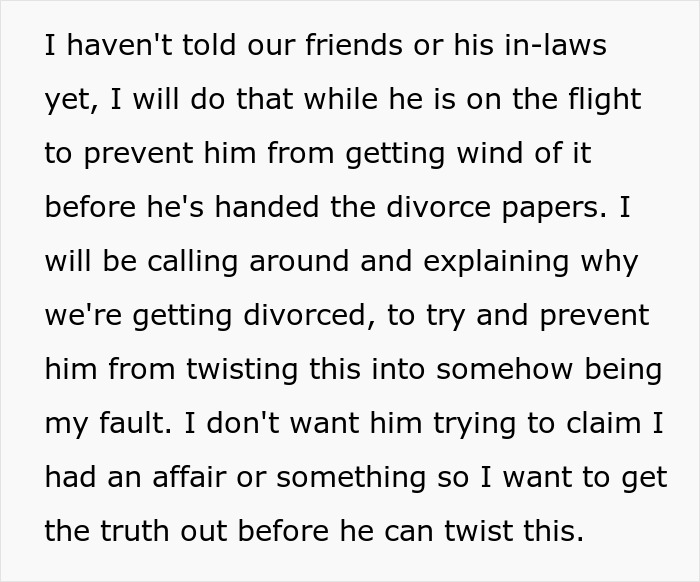
Image source: Anna Shvets (not the actual photo)
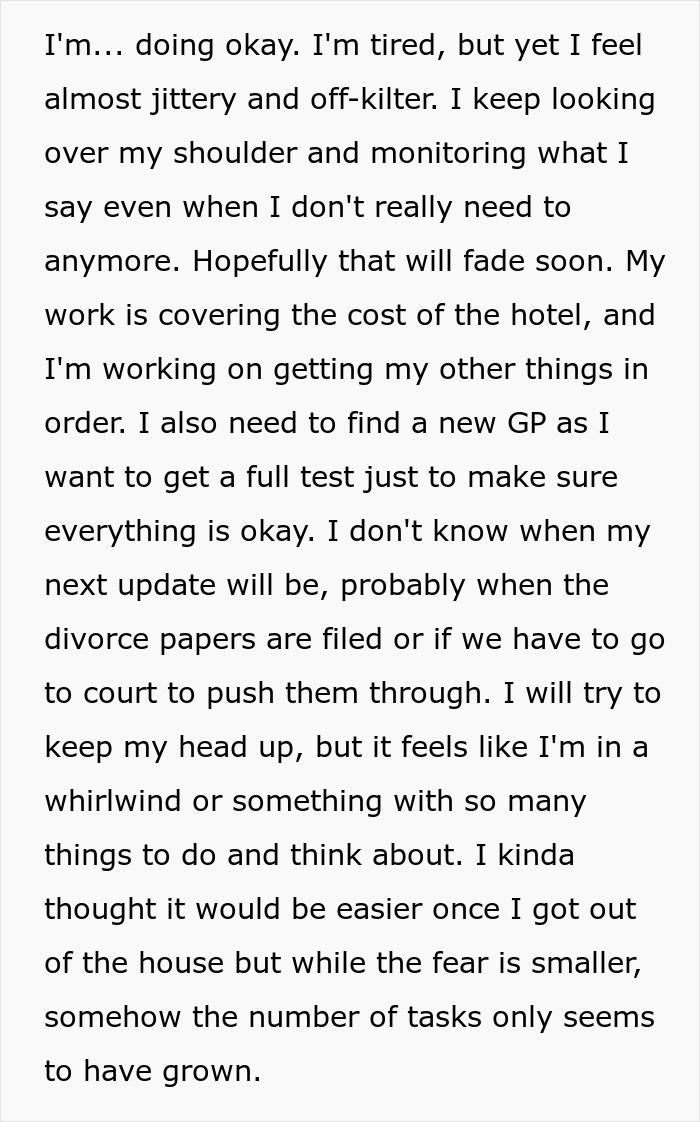
Image source: Complex-Wing7114
The husband was livid after receiving the divorce papers
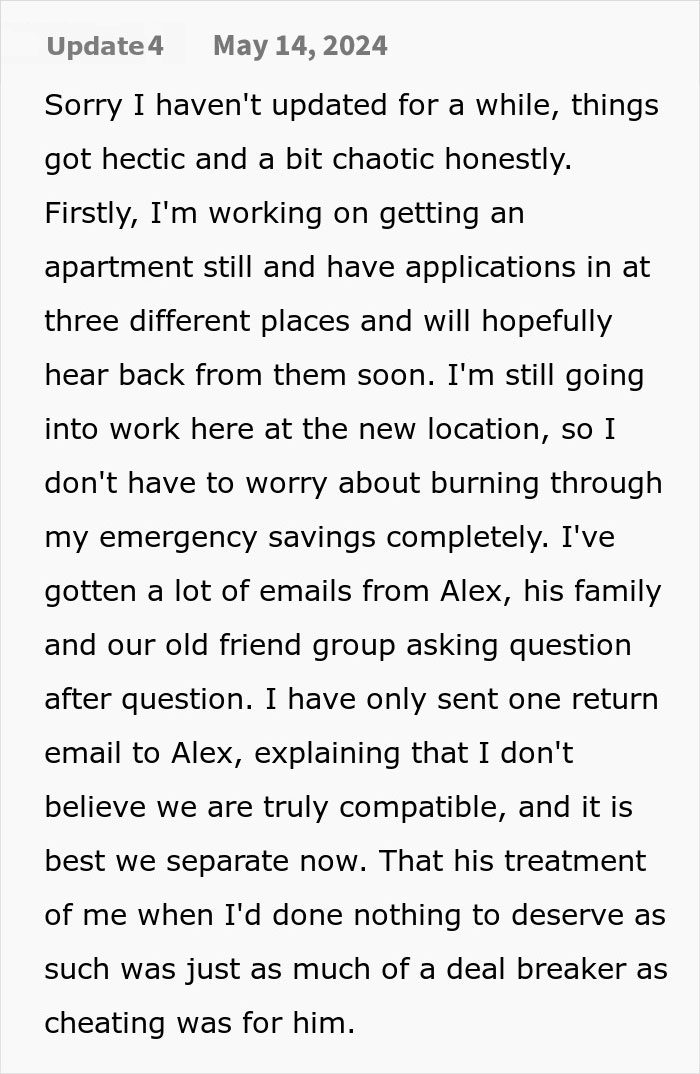

Image source: Karolina Grabowska (not the actual photo)


Image source: Complex-Wing7114
Quite recently, the woman answered additional questions and posted a final update
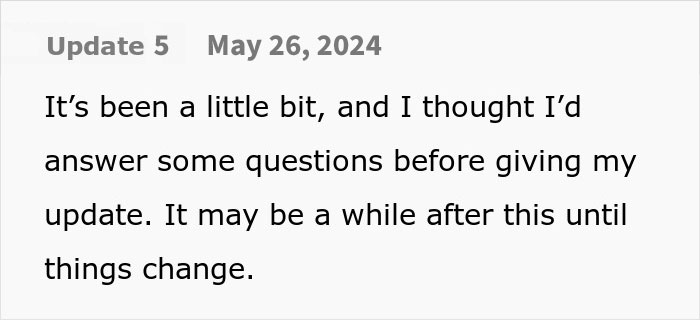

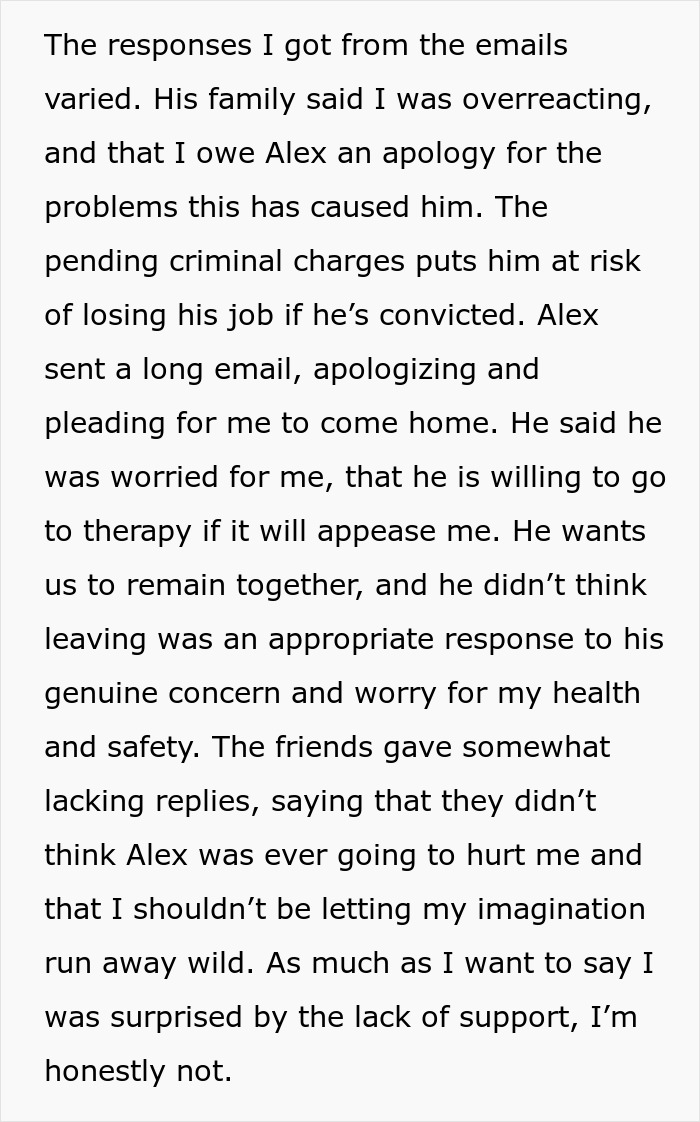
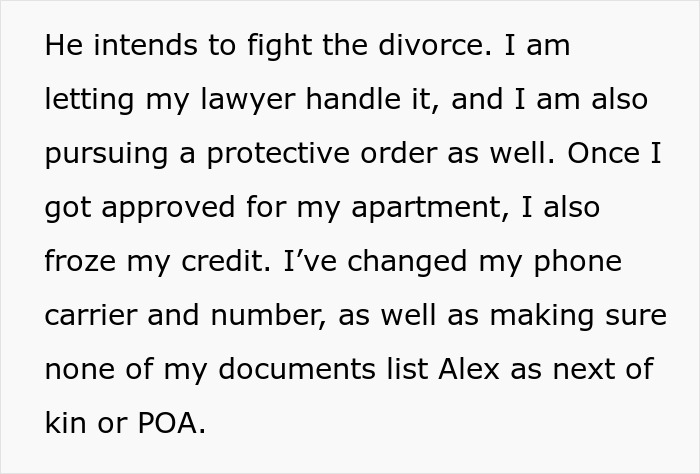
Image credits: Tim Samuel (not the actual photo)

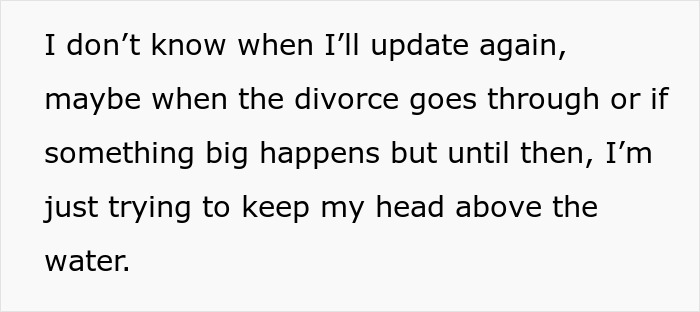
Image source: Complex-Wing7114
16% admit not trusting their partner, even if they’ve never been cheated on
16% admit not trusting their partner, even if they’ve never been cheated on. This number rises to 32% among those who experienced infidelity. More interestingly, nearly half of the respondents confessed to using modern technology to spy on their loved ones. The findings show that there’s a significant level of mistrust among couples, which has the potential to cause trouble in the future.
As evident in the data above, people who have experienced some type of betrayal, like unfaithfulness, may develop trust issues that harm future relationships. A 2017 study found that our ability to trust is influenced by genetic factors. On the other hand, distrust is primarily influenced by social factors.
Early childhood experiences play a big role in shaping individuals’ ability to trust the people around them. This means that trust issues can come from a number of sources, including parental conflicts. If children are accustomed to seeing trust problems within their families, they might fear that the same thing will happen to them when they grow up.
Experiencing social rejection in childhood can also contribute to this worry. Various negative events in younger years are also likely to result in trust issues. Experts even propose that a person’s attachment style (how we bond/connect with people) plays a role in how they respond to trust in relationships. Those with a secure attachment style may be more likely to trust others and forgive mistakes. Meanwhile, people with insecure attachment styles struggle much more with it and often tend to feel jealous and anxious in relationships.
Individuals with trust issues also often feel a need for control
One of the signs indicating that your partner struggles with trusting others is suspiciousness. They might question other people’s intentions and feel like everyone is out there to deceive them. In addition, they could be assuming the worst, focusing on the negative, and struggling to establish long-lasting relationships.
Individuals with trust issues also often feel a need for control. They might feel betrayed or taken advantage of if they don’t have a grip on the situation. However, controlling behavior might be mistaken for a mistrusting one. Therefore, it’s important to distinguish the two.
Marriage and family therapist Marisa T. Cohen, PhD, LMFT, says that an early sign of controlling behavior is limiting a person’s autonomy. “If the behaviors are manipulative, such as situations in which a partner is trying to gain power, that is controlling,” she adds. “Signs may include a partner enacting behaviors in which they are trying to limit your access to support systems (including family and friends), trying to steer the decision-making process or the relationship as a whole, closely monitoring you, and/or refusing to take ownership when they do something wrong and instead shifting the blame to you.”
Therapist and author Catherine Cabrera tells us that “realistically, mistrust will naturally evolve into controlling behaviors.” To determine if such issues are worth fixing, she says that both partners should be willing to put in the work. “Each person plays a role in the relationship dynamic, so if each person is willing to take responsibility for their role and work on building a healthier relationship, it can work. If not, the relationship typically doesn’t last and/or becomes even more unhealthy over time.”
“Clear signs that it’s time to leave include abuse, both physical and psychological,” says Cohen. “It is also important to leave if your needs aren’t being addressed or met, or if there is a power dynamic in which you aren’t being respected or heard. If a relationship is damaging to your well-being, it isn’t a healthy relationship.”
Cabrera further explains, “These types of behaviors, if the person is not willing to recognize and take ownership of them, are likely to get worse and more controlling over time, which falls into emotionally abusive territory, especially when experienced for long durations.”
She signs off by saying, “At the end of the day, the primary sign it’s time to leave a relationship is when you are no longer happy and/or the relationship feels emotionally, mentally, or physically unsafe.”
Readers were all for supporting the woman


